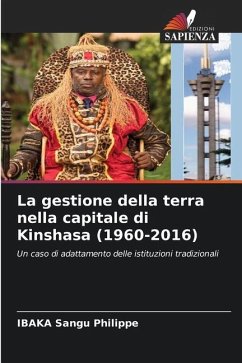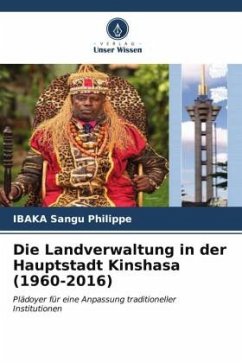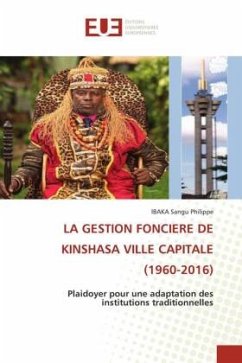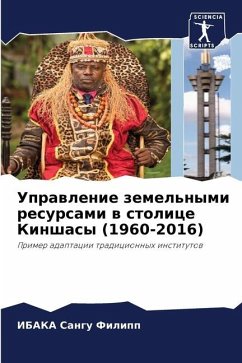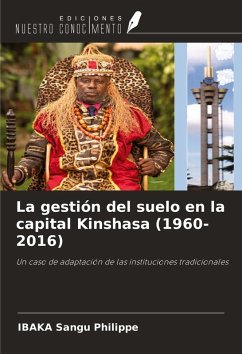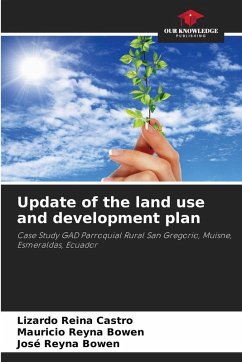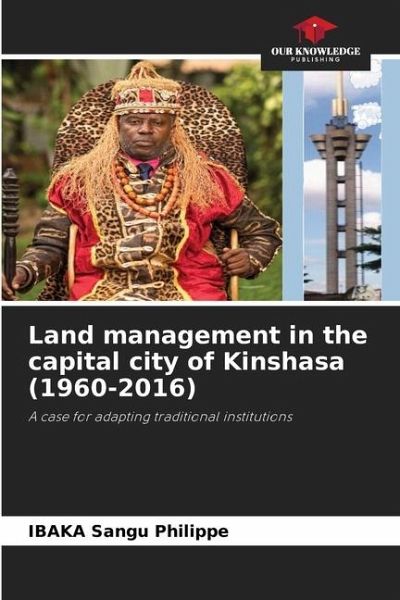
Land management in the capital city of Kinshasa (1960-2016)
A case for adapting traditional institutions
Versandkostenfrei!
Versandfertig in 6-10 Tagen
56,99 €
inkl. MwSt.

PAYBACK Punkte
28 °P sammeln!
The Democratic Republic of Congo, a vast territory in the heart of Africa, has known the existence of traditional chiefs and chiefdoms before and after colonisation. With the development of cities, a new way of governing was introduced with impersonal institutions. It is therefore important to understand how chieftaincies located within the city adapt to this new institutional urban environment. In addition, in this institutional urban environment, how are the various traditional institutions adapting in interaction with their urban equivalents, and how is communal land tenure adapting in the ...
The Democratic Republic of Congo, a vast territory in the heart of Africa, has known the existence of traditional chiefs and chiefdoms before and after colonisation. With the development of cities, a new way of governing was introduced with impersonal institutions. It is therefore important to understand how chieftaincies located within the city adapt to this new institutional urban environment. In addition, in this institutional urban environment, how are the various traditional institutions adapting in interaction with their urban equivalents, and how is communal land tenure adapting in the face of private and state ownership in the capital city, Kinshasa? However, it should be noted that adaptation was not uniform (homogeneous) depending on whether one was in the colonial city, in the planned zone or in the peripheral zone of Kinshasa. In the former colonial zone, traditional institutions disappeared and were replaced by modern urban state institutions; in the planned zone, they lost their authority; and in the periphery, they coexist.






